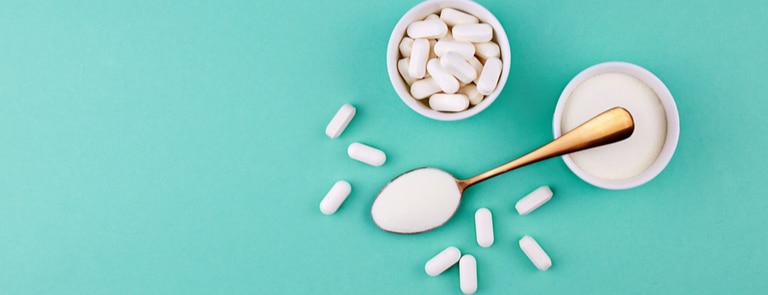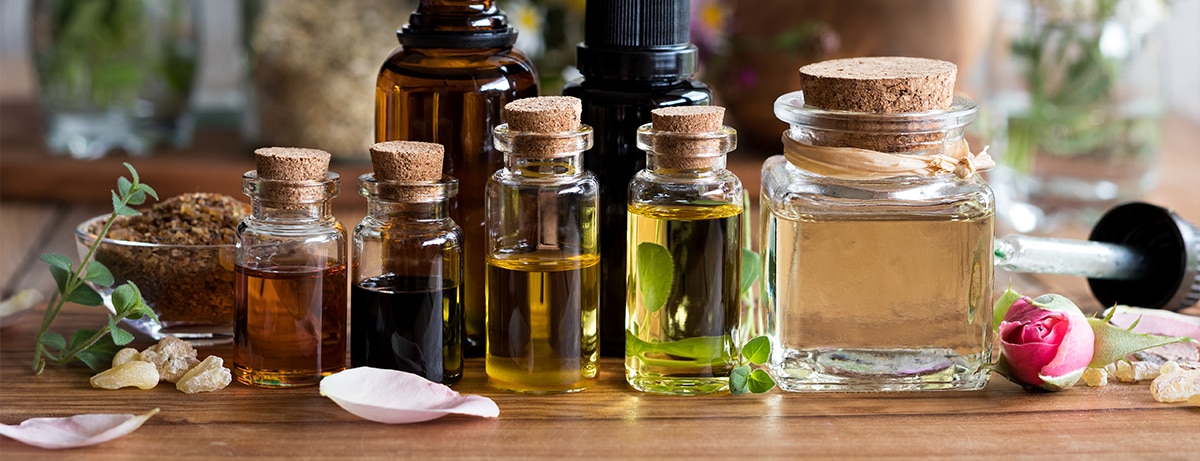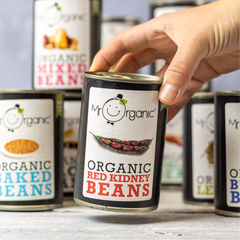10% off £25 OR 15% off £35
Our guide to the top 10 benefits of collagen

Collagen is making its way into many of our skincare products and supplements.
You’ve probably heard good things about it, like its ability to support skin, bones, and muscles.
Or maybe you’ve caught snippets here and there and want to piece them all together. And that’s where we come in!
So, before you reach for the next wonder product, we can help you to understand exactly what collagen is and how it benefits your body to help you decide if collagen is for you.
Skip to:
- What collagen is
- How collagen works
- If collagen can be replaced
- What’s in collagen supplements?
- 10 collagen benefits
- The different types of collagen
- Are collagen supplements for you?
- The link between collagen and cold weather
- Vitamin C and collagen
- The best sources of collagen
- Which foods contain collagen?
- What impacts collagen
- All about lycopene and ceramide
- Is collagen a complete source of protein?
- At what age should I start taking collagen?
- Collagen risks/side effects
- The best collagen supplements
- The final say
What is collagen?
When we talk about how our skin naturally ages, one word that often crops up is “collagen”. But what exactly is it?
Collagen is a protein that occurs naturally in all animals and humans. It’s the body’s most abundant form of protein, contributing to around a third of the body’s total supply.1 However, collagen isn’t just the key to firmer-looking and -feeling skin. It also has a vast number of other essential uses throughout the body.
Most hard and soft tissues in your body are primarily made up of collagen protein from your tendons to your gums. It is also found within the bones, skin, and ligaments, in addition to blood vessels, corneas, and teeth.
While it’s typically known for providing structure to your skin, it’s also vital in helping the blood clotting process. There are four main types of collogen which support several systems within the body. But, as we age, we produce not only less of it but also a lower-quality version.
This becomes more visible in the skin, but it’s also evident in other ways; as our collagen decreases, the cartilage in our bones begins to weaken. After the age of 20, you produce around 1% less collagen in your skin each year.2 This means that your skin becomes thinner and more likely to develop wrinkles from this point.
How does collagen work?
The exact biological mechanisms aren’t yet known, but scientists say collagen’s wrinkle-fighting abilities could be because it breaks down into small chains of amino acids and peptides.3
When your body breaks down collagen in the digestive system, the fragments of amino acids and peptides are absorbed into the bloodstream. This then triggers the body’s natural production of collagen within the skin.
Collagen acts as a kind of springy scaffold for your skin - holding it together, giving it structure, and allowing it to bounce back after injury.4 It also has a hand in scalp health, helping hair grow strong and thick, and keeping nails from splitting and flaking.
Chemically speaking, collagen is made up of strong strands of amino acids which are bound tightly together in a rope-like chain.5 These strong chains are what give young, healthy skin its resilience and plumpness.
Babies, children, and teenagers produce collagen at a rapid rate as they grow. This is one reason their skin is so smooth and wrinkle-free. As we age, our bodies slowly produce less and less collagen, and the effects are reflected in signs like wrinkles, sagging skin, thinning hair, and weak, brittle nails.6
Can we replace the collagen we lose as we get older?
Not exactly.
But if you want to:
- Protect the structure of your skin
- Minimise the appearance of fine lines,
- Maintain the health of your hair and nails
collagen supplements might be able to help.
Collagen supplements contain collagen protein which has been broken down into shorter chains of amino acids, known as collagen peptides.
These peptides are thought to stimulate the natural collagen production in the body, leading to visible and tangible results over time.7
What’s in collagen supplements?
You get to choose how you take your collagen!
They’re available as collagen pills, collagen shots, liquid collagen, collagen powder, collagen serum, collagen cream, chewable collagen gummies…and even collagen powders that can be added to drinks.
Most collagen supplements will contain Type I collagen, Type II collagen, or a mix of both.
Type I is considered the best type for beauty, as it’s known to be naturally present in hair, skin, and nails.8 You’re most likely to find Type I collagen in supplements derived from beef (bovine collagen).
What are the benefits of taking collagen?
Could there be a way to help regain some of the lustre of youthful hair, skin, and nails as we get older?
Yes! Taking collagen supplements or upping the number of collagen-rich foods in our diet can help.
We’ve listed 10 of the main collagen benefits below:
1. Healthier skin
There is growing medical evidence that collagen may help fight the appearance of wrinkles.
A 2014 study published in Clinical Interventions in Aging found that 15% of those taking a liquid collagen beauty supplement with added vitamins and minerals had fewer facial lines and wrinkles after 60 days. 9
The study also revealed that 32% experienced improvements in photo-ageing – ageing caused by sun exposure – and for 39%, skin dryness decreased too.9
German researchers found a “statistically significant” improvement in skin elasticity and a positive influence on skin moisture and hydration levels in those who took hydrolysed collagen supplements.10
Another study in Skin Pharmacology and Physiology found a 20% reduction in eye wrinkles after 8 weeks of taking collagen supplements.11
More recent research from 2019, published in Skin Pharmacology and Physiology, showed significant improvements in skin hydration, elasticity, and density after 12 weeks of taking oral collagen.4
2. Less joint pain
Cartilage (the tissue responsible for protecting our joints) is made up of collagen and therefore starts to decrease as we age.
This means we can potentially be more at risk of developing joint disorders like osteoarthritis, as we age.
Research has found that collagen supplements can stimulate tissues in the body to make more cartilage.12
In addition to this, a study conducted by the Current Medical Research and Opinion found that the 73 athletes who consumed 10g of collagen every day for 24 weeks experienced a lower level of joint pain during both walking and at rest compared to the group that did not take it.13
3) More muscle mass
Collagen is thought to help increase muscle mass and strength. Around 1 to 10% of muscle tissue within the human body is made up of collagen, which helps keep muscles strong and working as they should.4
And according to research from the British Journal of Nutrition, collagen supplements can potentially contribute to muscle growth and encourage the creation of muscle proteins, such as creatine.14
You might find collagen supplements useful if you’re looking to build muscle mass. However, they should not be used as a substitute for dietary protein (like meat, eggs, dairy products, nuts, and soya). A balanced, nutritious diet will give you more energy and should always come first!
4) A healthier heart
It’s thought that collagen supplements reduce the risk of heart-related conditions.
A study by the Journal of Atherosclerosis and Thrombosis (2017) found that collagen contributes to and maintains the structure of our arteries.
Arteries are responsible for pumping blood from our heart and around our body, and not having enough collagen could mean our arteries become weaker over time.15
5) Strong bones
Our bones are mainly made up of collagen, which gives them structure and helps keep them strong.
The older we get, the less collagen we have in our body, so the less bone mass we have.
Seminars in Arthritis & Rheumatism compiled research that showed taking collagen supplements may help maintain a healthy bone mass compared to taking collagen before and after.16
The use of collagen has also been shown to be beneficial in cases of joint pain and weakness, and it’s believed that collagen supplements can also play a role in managing the symptoms of arthritis.
It has also been found to support healthy bone mineral density in older women, just one of the many collagen benefits for women.17
Handpicked content: 12 ways to support your bone health
6) Better digestion
According to certain research, collagen contains the amino acid glycine, which can potentially promote normal and healthy digestion.18
7) Stronger, healthier hair and nails
The benefits of collagen for hair and nails are less well-known but equally as impressive.
One 2014 American study showed the potential for significant benefits of oral collagen on hair and nails. An oral supplement that included collagen (along with hyaluronic acid, peptides, and lipids) was given daily to 54 women aged 26 to 68.
The results showed statistically significant improvement in nail cracking and nail brittleness by nearly 80%, as well as with hair dullness, hair dryness, and nail softness after 8 weeks.19
A longer trial conducted over 60 weeks revealed that, after only 9 months, 100% of participants saw an improvement in hair dryness, hair dullness, and nail peeling compared to taking collagen before and after.19
The authors concluded that “beauty nutritional supplementation with peptides and lipids – the building blocks necessary for healthy skin, hair, and nails – as well as hyaluronic acid and collagen… provides rapid, measurably significant, and long-lasting results.”
8) A healthier gut
Heard about how collagen benefits your gut health?
Back in 2017, a study was published by Food & Function that found collagen peptides to inhibit the breakdown of the lining in the intestines.20 In addition, Clinical and Experimental Gastroenterology researched this topic in 2012.
It found that gelatine tannate supplements naturally contain collagen to promote anti-inflammatory responses in the gut.21
9) Weight loss
While there’s still limited research to back it up, it’s been speculated that collagen could help with weight loss because it can potentially speed up people’s metabolism.
Additionally, a specific type of collagen from a Skate fish has been found to reduce body fat in humans, according to a 2019 study published in the Marine Drugs journal.22
10) Reduce recovery time
Collagen helps fortify connective tissue, which supports your active muscles -meaning that injury recovery time can be reduced.
An article in the Amino Acids journal (2021) backs this idea up, concluding that a daily dose of 5-15g of collagen each day improved joint pain and functionality and that muscle recovery showed a modest but significant improvement.23
What are the main different types of collagen?
There are at least 16 different types of collagen.
However, people tend to refer to these 5 as the main types:
- Type 1: makes up 90% of the human body.24 This type of collagen is found in our skin, bones, blood vessel wall, connective tissue, and fibrous cartilage. It’s also present in scar tissue, and of all the different forms of collagen, this is the one that’s mainly linked to skin ageing (wrinkles, fine lines, etc).
- Type 2: you’ll find this in the cartilage between your joints. It’s got a good rep for helping ease joint pain and can be found in abundance in bone broth.
- Type 3: there’s lots of this in our intestines. Plus, it helps create and improve the structure of our muscles, organs, and blood vessels.
- Type 4: is less common than collagen types 1 to 3 and helps our kidneys and organs function properly. In addition, this type of collagen is believed to help with wound healing.
- Type 5: is found in some layers of skin, hair, and placenta tissue during pregnancy.9
Are collagen supplements for you?
The passing of years will always show eventually, which isn’t bad.
With age comes confidence and wisdom you could only have dreamed of in your teens– which is something to be celebrated!
However, the evidence for collagen supplementation is promising, and as collagen is a naturally occurring substance within our bodies, it’s well-tolerated and very low risk.24
So why not find out for yourself what collagen could do for your skin, hair, and nails?
Collagen and cold weather
Adding collagen to your beauty regime could be particularly beneficial in winter, when cold weather and central heating play havoc with our hair, skin, and nails.
Most of us tend to cut back on fresh fruit and veggies during the winter, too, meaning we could be missing out on essential nutrients like vitamin C (which helps the body produce collagen). It’s necessary to get plenty of vitamin C in our diet, but this means a collagen supplement could be even more useful in the colder months.25
Can I take vitamin C and collagen together?
Absolutely! And as we just mentioned, vitamin C helps the body to produce more collagen, so doubling with a supplement is the way to go.25
What is the best source of collagen?
Different collagen sources provide different types of collagen and therefore offer various health-related benefits.
So, not only is there not one “best” source, but you’ll need a little of every type.
However, bone broth is considered one of the most collagen-rich foods, as it’s highly nutritious and full of collagen – all in a liquid form that your body can easily absorb.
It depends on the ingredients you use, but it’s estimated that one cup of bone broth contains about 5g of collagen! Anywhere from 2.5g to 15g per day is considered safe and effective.26
Bone broth also contains a variety of nutrients, including some that help your own bone health. As well as collagen, it can provide:
- Calcium
- Magnesium
- Potassium
- Phosphorus27,28
You’ll also want to include plenty of zinc, vitamin C, and copper in your diet, as they can help with collagen production - so bear them in mind when planning your next collagen-packed meal.29,30,31
What foods contain collagen?
There are several ways you can naturally increase the number of collagen-rich foods you consume.
The main dietary sources of collagen are:
- Chicken bone broth: which doesn’t just contain bone but also cartilage. Because of this, it’s high in collagen in our skin and bones, as well as glucosamine, chondroitin, and hyaluronic acid.
- Bovine collagen: contains two different types of collagen: skin and bone and cartilage collagen, which is especially beneficial for our skin and bones.
- Egg whites also contain two different types of collagen, but not the same as bovine collagen. Eggshell membranes contain the same type of collagen found in placentas and the collagen that’s in cartilage and disc tissue.
- Marine collagen: is most commonly found in freshly caught fish. It’s mainly made up of the collagen that’s in our skin and bones. It also contains some of the same collagen that’s in our gut lining.32
- Other foods that promote collagen production include citrus fruits (e.g., oranges, grapefruit, lemons, limes), berries (e.g., raspberries, blueberries, blackberries), tropical fruits (e.g., mango, kiwi, pineapple), garlic, leafy greens, cashew nuts, tomatoes, and bell peppers.33,34
Handpicked content: 15 collagen-rich foods and drinks
What destroys/impacts collagen?
Our age can massively impact our collagen levels. But so can certain lifestyle factors.
1) Eating lots of sugary food and refined carbs
This is because sugar interrupts collagen’s ability to do what it does naturally and repair itself.35
2) Catching too many rays
This is because the sun’s UV rays can reduce collagen production, making excessive sun exposure a massive no-no.36
3) Smoking
Like UV rays, smoking reduces collagen production, too, as it increases the level of harmful free radicals in the body.37 This can also lead to signs of skin photoaging, like wrinkles.38
How do lycopene and ceramide add to these benefits?
Lycopene is a powerful antioxidant – and it also happens to be what gives tomatoes their red colour.
Ceramides are a type of fatty acid called lipids that are fantastic for helping to lock in moisture and protecting against environmental damage.39
So, when you combine these things with the effects of collagen, it offers some really exciting results for your skin.
Is collagen a complete source of protein?
Collagen is a unique type of protein, as it does not have all 9 of the essential amino acids that a complete protein (like you’d find in meat or eggs) requires.
However, it does contain some essential amino acids that are lacking in many modern diets and are effective in recovery and repair.
That means taking a collagen supplement can be effective in acting as the glue that holds much of our bodies together, keeping us strong and flexible, but it should not be taken as your main protein source.
At what age should you start taking collagen?
Since collagen production declines by 1-1.5% each year from early adulthood, you may want to consider taking collagen supplements from your mid-twenties.
But it’s never too late! Collagen supplements can help support firmer, more supple skin at any age.40
What are the side effects of taking collagen?
Fortunately, collagen supplements are generally safe to use and are not likely to cause major side effects.
But some people are sensitive to collagen supplements or might be allergic to some of its ingredients. So it’s always recommended to check the label thoroughly and take caution with any new supplements.
Some reported minor side effects include41
- Bloating or a feeling of heaviness in your stomach
- Mild diarrhoea
- Rashes
These shouldn’t be dangerous, but you should always consult your GP if you’re concerned or if these side effects persist.
Which is the best collagen supplement?
When taking a supplement, you should always ensure that you are giving your body exactly what it needs.
With its many forms, deciding which collagen supplement to choose can be difficult. Whilst collagen powder benefits from being a great addition to your morning brew, collagen tablets are super easy to take. So, consider your day-to-day life and which form of supplement would suit you best.
But it is important to remember that collagen supplements are not a form of complete protein, so you should make sure that you are taking a product that meets the requirements of your body.
Always take care in introducing a new supplement into your diet.
If you are unsure or experience any adverse effects, you should consult your doctor.
Handpicked content: Meet our collagen gurus
The final say
How are you feeling about collagen now?
We’d like to think you’re a lot clearer on the main collagen benefits and some of the ways it helps with skin and body health!
To summarise:
- Collagen is the most abundant protein in our bodies
- It has many different functions – but, in short, it helps to strengthen our bones, muscles, and tissue and keep our hair, skin, and nails strong and healthy.
- There are many different types of collagen, but around 5 “main” types responsible for most of our body
- We lose collagen as we age, so including collagen in your diet or taking supplements can help to replenish it
- You might want to take collagen to help support your muscles and joints or to contribute towards firmer, more youthful-looking skin
- You can find collagen supplements in almost any form: tablets, liquids, gels, powders, drinks, and even gummies
- Collagen supplements are believed to be very low-risk and effective in helping you age healthily
To continue your collagen research, read: Can collagen keep your joints and bones healthy?”
The advice in this article is for information only and should not replace medical care. Please check with your GP or healthcare professional before trying any supplements, treatments, or remedies.
Before taking any supplements or minerals, it’s best to make sure you’re getting all the nutrients through your diet first.
Food supplements must not be used as a substitute for a varied and balanced diet and a healthy lifestyle.
Last updated: 14 September 2022
- https://www.longdom.org/open-access/a-nutritional-supplement-formulated-with-peptides-lipids-collagen-and-hyaluronic-acid-optimizes-key-aspects-of-physical-appearance-in-nails-hair-and-skin-2155-9600.S5-002.pdf
- https://pubmed.ncbi.nlm.nih.gov/28174772/
- https://www.ncbi.nlm.nih.gov/pmc/articles/PMC3358810/
- https://www.ncbi.nlm.nih.gov/pmc/articles/PMC6471368/
- https://link.springer.com/article/10.1007/s00726-021-03072-x
- https://www.ncbi.nlm.nih.gov/pmc/articles/PMC8399689/
- https://www.ncbi.nlm.nih.gov/pmc/articles/PMC6204628/
- https://www.webmd.com/diet/health-benefits-collagen-powder#1
- https://www.ncbi.nlm.nih.gov/pmc/articles/PMC5804294/
- https://www.ncbi.nlm.nih.gov/pmc/articles/PMC5533136/
- https://pubmed.ncbi.nlm.nih.gov/7466582/
- https://www.ncbi.nlm.nih.gov/pmc/articles/PMC6204628/
- https://www.ncbi.nlm.nih.gov/pmc/articles/PMC4556990/
- https://goop.com/wellness/health/best-sources-of-collagen/
- https://www.ncbi.nlm.nih.gov/pmc/articles/PMC5579659/
- https://www.ncbi.nlm.nih.gov/pubmed/16465309/
- https://www.ncbi.nlm.nih.gov/pubmed/20620757
- https://www.ncbi.nlm.nih.gov/pmc/articles/PMC4665475/
- https://www.verywellmind.com/smoking-and-vitamin-depletion-2825319
- https://pubmed.ncbi.nlm.nih.gov/11966688/
- https://www.ncbi.nlm.nih.gov/pubmed/12553851
- https://parjournal.net/article/view/3863
- https://www.versusarthritis.org/about-arthritis/complementary-and-alternative-treatments/types-of-complementary-treatments/collagen/













